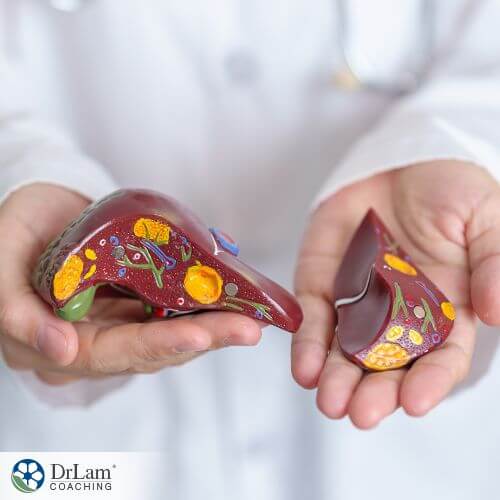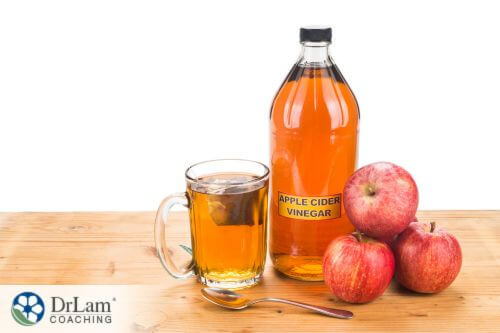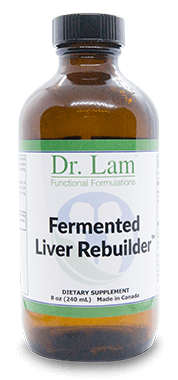Nonalcoholic fatty liver disease (NAFLD) is the most widespread of all chronic liver diseases. It’s a condition that often goes unnoticed for a long period of time. If undetected, liver failure and liver cancer could develop as a result. Still, when NAFLD is identified, you can quickly take steps to alleviate the condition and restore your liver’s health. Learn more about NAFLD and how you can fix it today.
 NAFLD is a form of fatty liver disease that is not related to heavy alcohol use. According to an article in Metabolites, NAFLD comprises a wide spectrum of liver-related disorders, such as steatosis, cirrhosis, and hepatocellular carcinoma. Risk factors for NAFLD include obesity and diabetes. Also, adults and children can develop this condition. Two types of NAFLD exist:
NAFLD is a form of fatty liver disease that is not related to heavy alcohol use. According to an article in Metabolites, NAFLD comprises a wide spectrum of liver-related disorders, such as steatosis, cirrhosis, and hepatocellular carcinoma. Risk factors for NAFLD include obesity and diabetes. Also, adults and children can develop this condition. Two types of NAFLD exist:
The primary causes that are associated with nonalcoholic fatty liver are obesity and type II diabetes, but dyslipidemia and insulin resistance are also well-known causes.
Still, normal-weight individuals may also develop NAFLD caused by the build-up of visceral and muscular fat and its impact on the liver. According to an article in the European Journal of Gastroenterology & Hepatology, elevated levels of C-reactive protein and insulin resistance are strongly correlated with the risk of developing NAFLD.
Fatty liver disease is a silent condition that typically doesn’t cause symptoms. However, for individuals who experience signs of fatty liver, these may include:
Keep in mind that signs of NAFLD are usually absent in the early stages of the condition.
Although there's no medication yet to manage nonalcoholic fatty liver disease, you can experience improvements with diet and lifestyle changes.
By managing certain metabolic factors like blood pressure, blood sugar levels, cholesterol, and weight, you may be able to slow, stop, and even reverse the buildup of fat in your liver.
Weight loss is usually the starting point of ameliorating NAFLD. As mentioned earlier, this can be achieved by taking such steps as eating a balanced and healthy diet, exercising, or getting weight loss surgery. This weight loss helps address the health issues that contribute to NAFLD.
There is no immediate fix for non-alcoholic fatty liver at this time, but it can be reversed in some cases, which will allow your liver to regain proper functioning. Research suggests that adopting lifestyle changes is the fastest way to reverse fatty liver. Some of the measures include an emphasis on weight loss, reducing sugar and salt intake, reducing bad fats in your diet, and drinking coffee.
Research indicates that losing weight is the most effective action that you can take to not only control NAFLD but to reverse it as well. Reducing as much as a 10% loss of your total body weight is recommended, but between 3% and 5% weight loss can still enhance the health of your liver.
There are several ways that you can go about losing weight safely, so talk with your doctor about the best options for you based on your specific needs. Options available to you may include diet and exercise or surgery. Also, it is important to address other health issues that may contribute to weight gain like diabetes, high cholesterol, sleep apnea, and polycystic ovary syndrome (POC).
 Changing how you eat can help fix nonalcoholic fatty liver. It can do so by helping weight loss and reducing the level of fat in your liver, boosting your overall health in the process.
Changing how you eat can help fix nonalcoholic fatty liver. It can do so by helping weight loss and reducing the level of fat in your liver, boosting your overall health in the process.
What can you do to modify your diet? You can increase your intake of fruits and vegetables, fish, and high-fiber foods, while limiting carbohydrates, sugar, salt, and saturated and trans fats.
Additionally, you can have three cups of coffee per day, since, based on research, it may potentially lower liver inflammation.
If you suffer from NAFLD, you should stay away from alcohol. Drinking alcohol can cause fat buildup in your liver and can cause damage to the organ. If it’s a struggle to quit drinking altogether, limit your drinking. As a rule, to reduce strain on your liver, women should drink less than one glass of alcohol per day, and men, less than two glasses a day.
Furthermore, another way that you can minimize strain on your liver is to be careful with over-the-counter drugs and supplements. Read the labels carefully, and adhere to the dosage directions. In particular, pay attention to the instructions on the labels of cold medications and prescription painkillers. If you have nonalcoholic fatty liver, talk with your doctor about all drugs and dietary supplements that you take.
While there are no specific drugs approved to treat nonalcoholic fatty liver, some medications and supplements may be recommended by your doctor to address symptoms and certain risk factors. For instance, they may recommend medications to manage diabetes, like Actos. Or, you may require vaccination against hepatitis A and B, which can damage your liver.
Furthermore, you may be able to add supplements to your diet that can support your liver health. Dr Lam’s Fermented Liver Rebuilder can help nurture your liver and promote optimal metabolic harmony. The primary ingredient in this supplement is milk thistle, which has a reputation for boosting liver function. However, when it comes to medications and supplements, be sure to get the approval and guidance of your doctor first.
Liver function can become compromised in people with nonalcoholic fatty liver disease. Research has delved into how diet along with alpha lipoic acid (ALA), myo-inositol (MI), or propolis supplementation impacts metabolic parameters and liver function in these individuals. Other supplements that are great for liver clearance are Glutathione and Milk Thistle.
ALA is a cofactor for mitochondrial enzymes and is connected to the improvement of insulin resistance and BMI reduction. Furthermore, it’s involved in the regulation of the secretion of adipokines linked to NAFLD development. MetCalm is a powerful ally and consists of Alpha Lipoic Acid (ALA), Grape Seed Extract, and Black Pepper. ALA is a potent antioxidant and plays a critical role in energy production within cells. Additionally, ALA may alsohelp lower blood sugar levels, reduce inflammation, slow skin aging, and improve nerve function.
MI is a 6-carbon sugar alcohol that the body produces endogenously. Rich in Myo-Inositol and D-Chiro Inositol, InoPlex addresses NAFLD by orchestrating a harmonious balance of hormones and bolstering weight loss efforts, both essential components in managing this liver condition. Inositol, integral to cellular membrane structure, fosters cellular health, directly influencing liver cell integrity and function. Enhanced with Bioperine, InoPlex assures optimal absorption, ensuring that the body fully reaps the benefits of its powerful ingredients.
 In a study posted in Clinical Nutrition ESPEN, 100 male and female obese patients with low or moderate physical activity levels and body mass index (BMI) greater than or equal to 30 kg/m2 with NAFLD were placed on a calorie-restricted diet and placed in 1 of 4 groups. These were alpha lipoic acid (n=21), getting 1,200 mg ALA + placebo, myo-inositol (n=23), getting 4 g MI powder + placebo, propolis group (n=24), getting 1,500 mg Iranian propolis + placebo, and the control group. Participants were between the ages of 18 and 50 years and the trial lasted 8 weeks. Several study parameters were assessed, including fasting body weight and BMI.
In a study posted in Clinical Nutrition ESPEN, 100 male and female obese patients with low or moderate physical activity levels and body mass index (BMI) greater than or equal to 30 kg/m2 with NAFLD were placed on a calorie-restricted diet and placed in 1 of 4 groups. These were alpha lipoic acid (n=21), getting 1,200 mg ALA + placebo, myo-inositol (n=23), getting 4 g MI powder + placebo, propolis group (n=24), getting 1,500 mg Iranian propolis + placebo, and the control group. Participants were between the ages of 18 and 50 years and the trial lasted 8 weeks. Several study parameters were assessed, including fasting body weight and BMI.
The research findings suggest that a calorie-restricted diet appears to be the most effective approach for weight loss among obese patients trying to manage their NAFLD and metabolic parameters. Myo-inositol is next in effectiveness and then alpha lipoic acid for improving hepatic steatosis.
LipoNano Glutathione and Fermented Liver Rebuilder are potent allies in managing and improving Non-Alcoholic Fatty Liver Disease (NAFLD). LipoNano Glutathione, often revered as the 'Master Recycler,' fortifies the liver’s antioxidant defense, neutralizing free radicals, and facilitating the detoxification of harmful substances. With its liposomal delivery, this formulation ensures enhanced bioavailability, allowing for optimal cellular absorption and utilization, vital for combating oxidative stress commonly associated with NAFLD.
Fermented Liver Rebuilder harnesses the robust liver-supportive properties of milk thistle, further enriched through fermentation. This process amplifies milk thistle’s inherent benefits, promoting easier absorption and utilization within the body. Milk thistle is renowned for its therapeutic potential in mitigating liver ailments, aiding in detoxification, and fostering optimal liver function and metabolism. Together, LipoNano Glutathione and Fermented Liver Rebuilder emerge as powerful constituents in a holistic approach to managing NAFLD, each playing a distinctive role in supporting liver health, function, and resilience.
If you have a fatty liver, it’s best to stay away from foods that will add to the fatty deposits that already exist in your liver. As such, foods that your doctor may recommend that you avoid include:
The best drink for fatty liver is fresh, organic vegetable juice. This can be made from a combination of ingredients including cucumber, beets, carrot, bell pepper, lettuce, and celery stalks. This juice can help to remove toxins from your body, lowering the toxic burden on your liver. As such, it helps to detox the liver and the body as a whole. You will need a blender or juicer to make this drink. As a perishable food item, you should consume vegetable juices immediately. It’s important to note that beets and carrots are higher in calorie content in comparison to other vegetables like cabbage and celery. As such, avoid consuming carrot and beet juices if you have issues with sugar imbalance.
 There is a lack of concrete evidence to support the effective use of apple cider vinegar to clean the liver. Research suggests that apple cider, with its antioxidant properties, could potentially provide protective effects against liver cell damage caused by several toxins. More research is needed to support this finding, however. As such, anyone with an interest in trying apple cider to clean their liver should talk to their doctor first for good measure.
There is a lack of concrete evidence to support the effective use of apple cider vinegar to clean the liver. Research suggests that apple cider, with its antioxidant properties, could potentially provide protective effects against liver cell damage caused by several toxins. More research is needed to support this finding, however. As such, anyone with an interest in trying apple cider to clean their liver should talk to their doctor first for good measure.
Adrenal Fatigue Syndrome (AFS) is the non-Addison's form of adrenal dysfunction, where the body's stress response cannot keep up with life's chronic stressors. AFS disrupts the proper functioning of different systems in the body. Chronic stress triggers the NeuroEndoMetabolic (NEM) Stress Response to overwork. The adrenal glands experience excessive fatigue trying to keep up with the demand for the stress hormone cortisol. As a consequence, it affects the liver.
Chronic inflammation increases the toxic load, and the liver must rid the body of it. The liver can overwork, and dysregulation of the detoxification circuit, which the liver is a part of, can take place. This means further strain on the liver. Several symptoms can emerge when the circuit misfires and liver function begins to decrease or fail. As such, fatty liver has the potential to contribute to an imbalance of the detoxification circuit. This further impedes the liver’s ability to remove toxins. That is why, with your doctor’s guidance, healing and supporting your liver should be a priority if you have nonalcoholic fatty liver.
There is no time frame for how long it may take to reverse nonalcoholic fatty liver. How well you adjust to your new lifestyle changes and if they work will determine how long it takes to reverse the condition. For example, if you are working to lose weight, results should be evident when you lose the weight. Still, you should see some results if you remain persistent.
Detoxing your liver can help to restore organ function. You can achieve this in particular by maintaining a good diet and proper nutrition. The goal is to prevent liver congestion to begin with. Simple changes that contribute to detoxing your liver include:
Nonalcoholic fatty liver does not usually show signs of its existence. However, you can begin taking steps today to support your health and improve the health of your liver. Maintain a healthy weight and a diet low in sugar, salt, and saturated fats but high in fruits and vegetables. Exercise regularly and drink plenty of water. Talk to your doctor about any concerns you have.
If you think that your liver is congested because of toxins in your body, the team at Dr. Lam can help you make an accurate assessment. We offer a free, no-obligation phone consultation at +1 (626) 571-1234 where we will privately discuss your symptoms and various options. You can also send us a question through our Ask The Doctor system by clicking here.

Fermented Liver Rebuilder can boost liver function through its powerful ingredient milk thistle.
Muriel, Pablo, et al. “Mechanisms of non-alcoholic fatty liver disease development in normal-weight individuals.” European Journal of Gastroenterology & Hepatology, vol. 35,5 (2023): 521-529. doi:10.1097/MEG.0000000000002530 https://journals.lww.com/eurojgh/abstract/2023/05000/mechanisms_of_non_alcoholic_fatty_liver_disease.1.aspx
Tsamos, Georgios, et al. "Therapeutic potential of reducing liver fat in nonalcoholic fatty liver disease: close association with type 2 diabetes." Metabolites, vol. 13(4), 2023, https://doi.org/10.3390/metabo13040517 https://www.mdpi.com/2218-1989/13/4/517
Tutunchi, Helda, et al. “Clinical effectiveness of α-lipoic acid, myo-inositol and propolis supplementation on metabolic profiles and liver function in obese patients with NAFLD: A randomized controlled clinical trial.” Clinical nutrition ESPEN vol. 54 (2023): 412-420. doi:10.1016/j.clnesp.2023.02.016 https://www.sciencedirect.com/science/article/abs/pii/S2405457723000542
You can fix nonalcoholic fatty liver with diet and certain lifestyle changes. These include eating healthy, exercising regularly, losing weight, minimizing stress on the liver, and taking medications and supplements. It requires dedication and time to achieve the desired results.